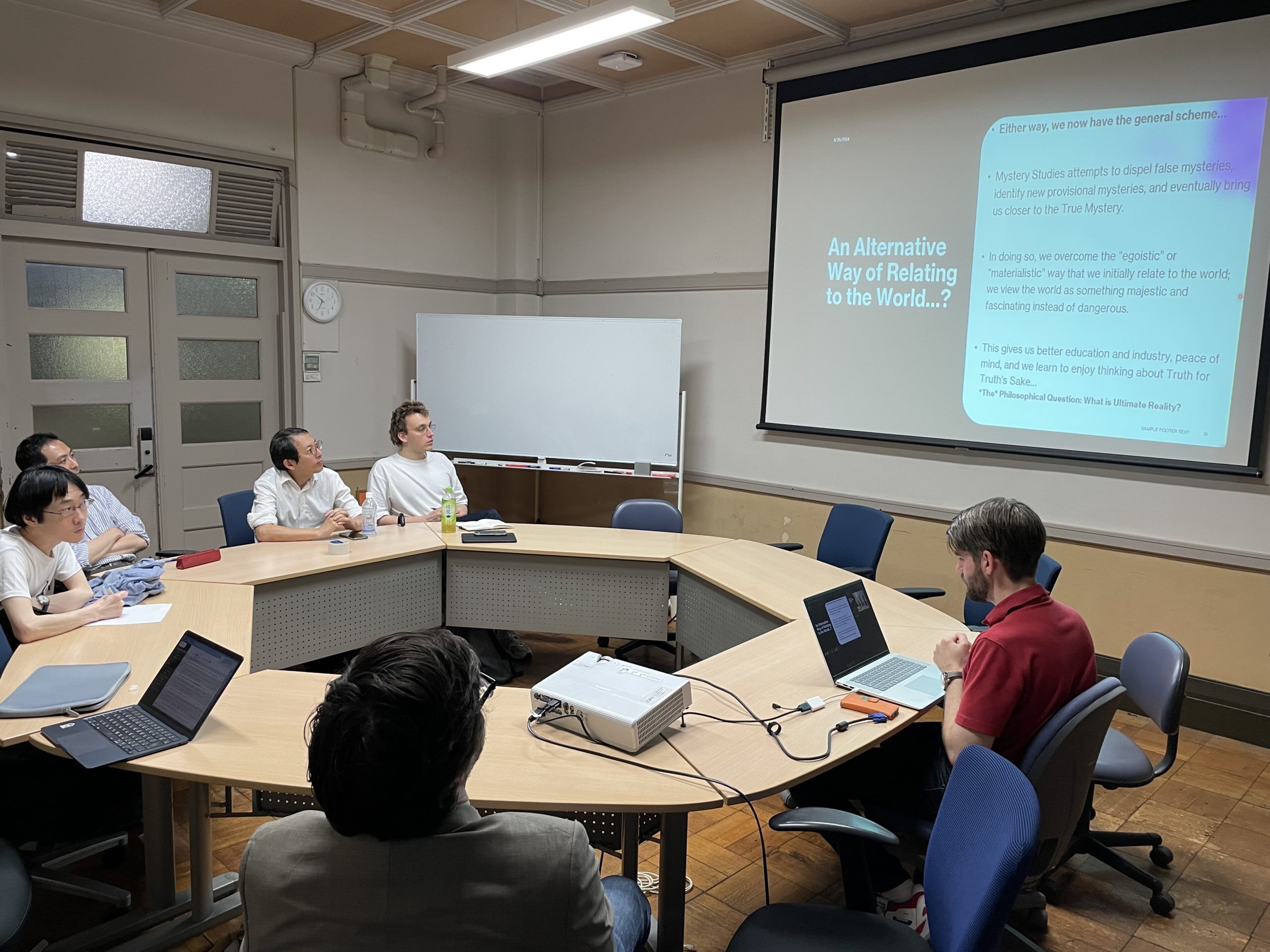JPN 6
Death, Peace of Mind, and Mysteries Revisiting the Moral Philosophy of Inoue Enryo’s Mystery Studies
Dr. Richard Stone, who received his PhD from Hokkaido University, delivered a talk on Inoue Enryo and mystery studies? As an ordained priest of Pure Land Buddhism, Inoue graduated from the University of Tokyo in 1885, and established the Philosophy Academy (later as Toyo University) in 1887. As a philosopher and educator, Inoue suggests that yokai are unscientific or unfathomable phenomena; mystery studies can be regarded as a project to debunk these false mysteries. The motivation behind mystery studies is protecting the nation and loving the truth. While false mysteries are beliefs such as mysteries of misunderstanding, artificial mysteries, true mystery is based on the spirit of loving truth. That is the proper object of religion. Besides, Inoue suggests there are provisional mysteries: some currently unexplainable phenomena could be explained later. Defending Japan requires dispelling false mysterie. For example, we cannot just pray for a good harvest, but need to develop scientific ways to yield better crops. Mysteric studies can promote science and enlightenment, and bring better political and military studies. While Inoue is trying to eliminate superstitions, he argues there is an afterlife. Those who defended the nation, will be rewarded immortality. The contemporary meaning of Inoue’s philosophy is not to protect the nation, but to care for our souls who fear death.

Reported by CHEUNG Ching-yuen









![[Report]The 6th Meeting of the Japanese Philosophy Network](https://www.eaa.c.u-tokyo.ac.jp/wp-content/uploads/2024/06/20240528-JPN-scaled-e1717655604805-1280x960.jpg)